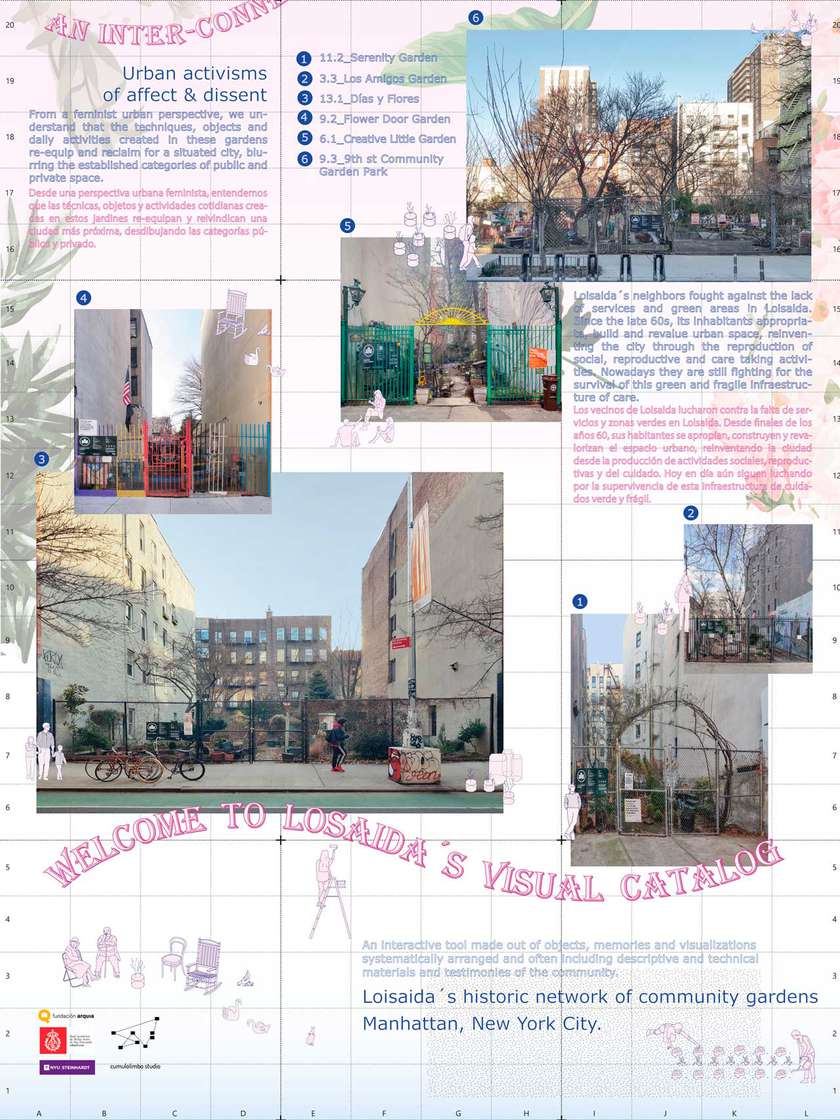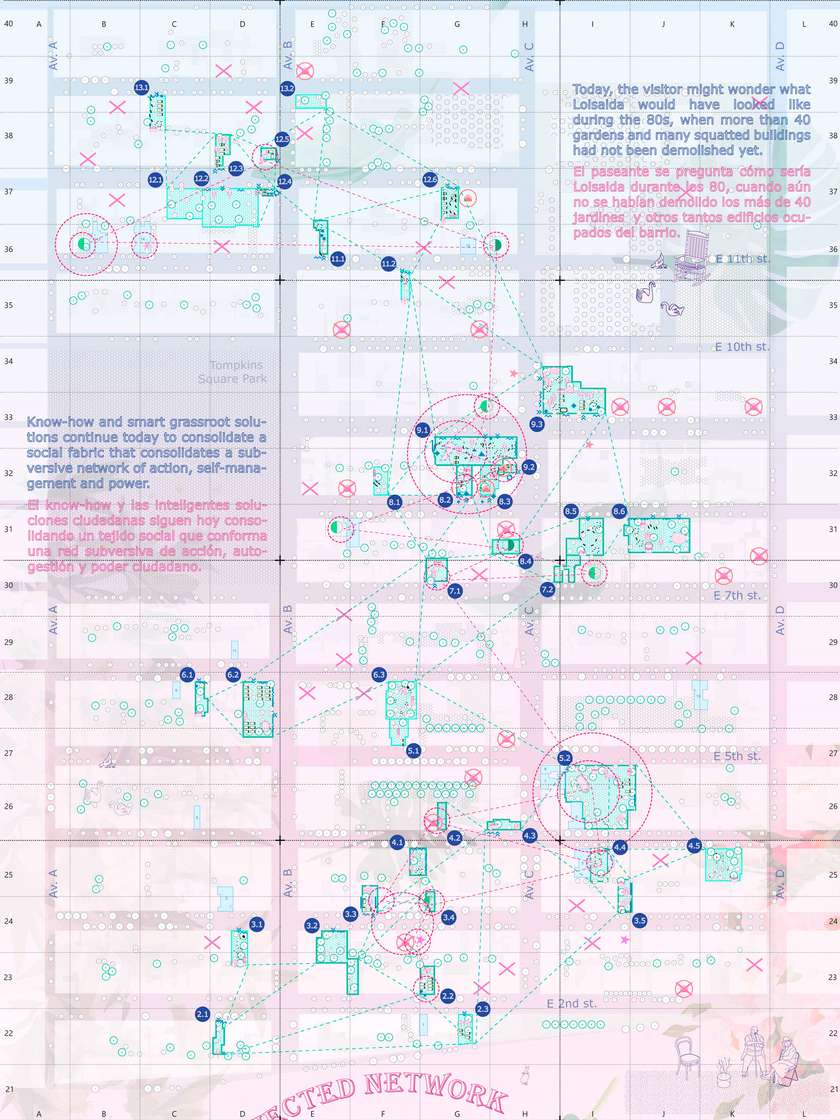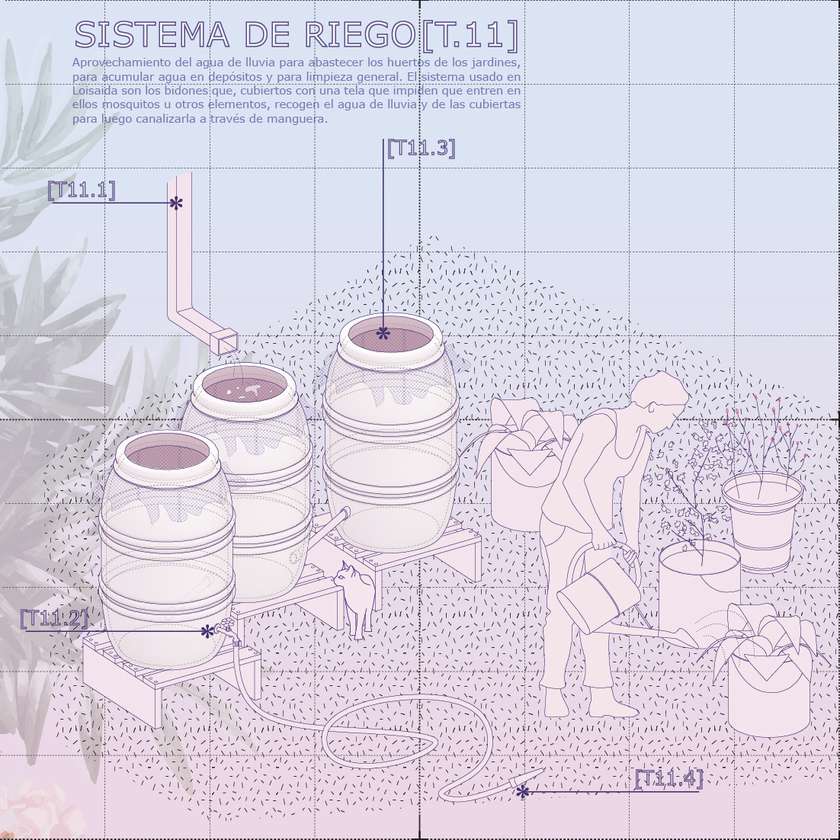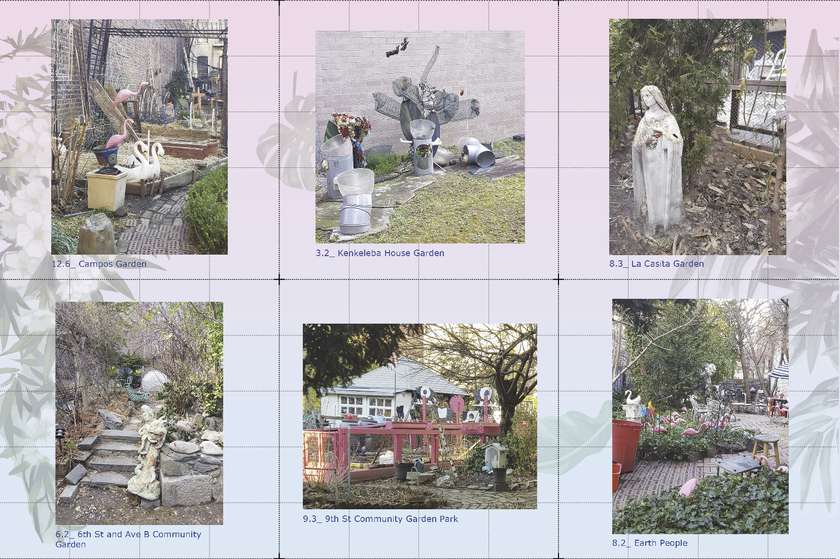Idea by
Natalia Matesanz Ventura, Clara Guixeras Miró
cumuloLimbo studio
Call for ideas 2021
The Loisaida real catalog, an urban incubator for everyday life
The Loisaida real catalog, an urban incubator for everyday life
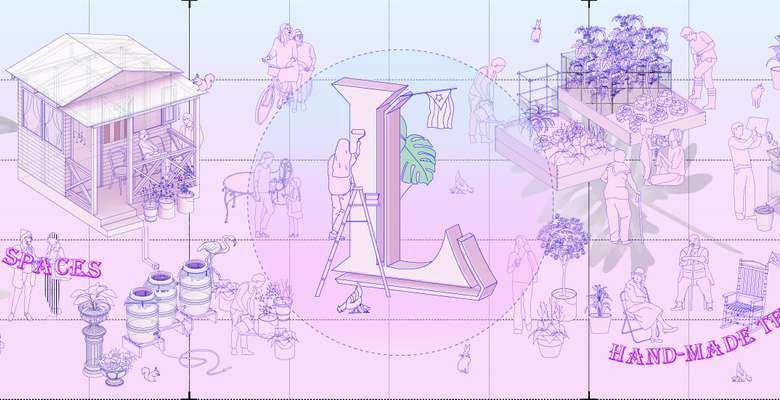
- Site-specific cases
The project digitally identifies and expands the physical and affective legacy of the gardens (which revalorize reproduction and economically non-productive activities). It also engages with the community and civic organizations through a catalog that reviews the existing devices on the gardens. Understanding them as a departing point for prototyping, instead of just a testimony of the past, these devices are put in dialogue with today´s discourses on ecology, urban permaculture, or Anthropocene. The project upgrades the orchards, windmills, compost systems or water tanks by inviting designers, artists, or scientists to cede their ongoing investigations and prototypes to be tried in Loisaida. Incorporating nature-based and biotechnological solutions, biohacking techniques, self-produced AI, the prototypes increase urban biodiversity, inter-species cohabitation, air purification and generate life´s resilience confronting climatic emergency and health challenges.
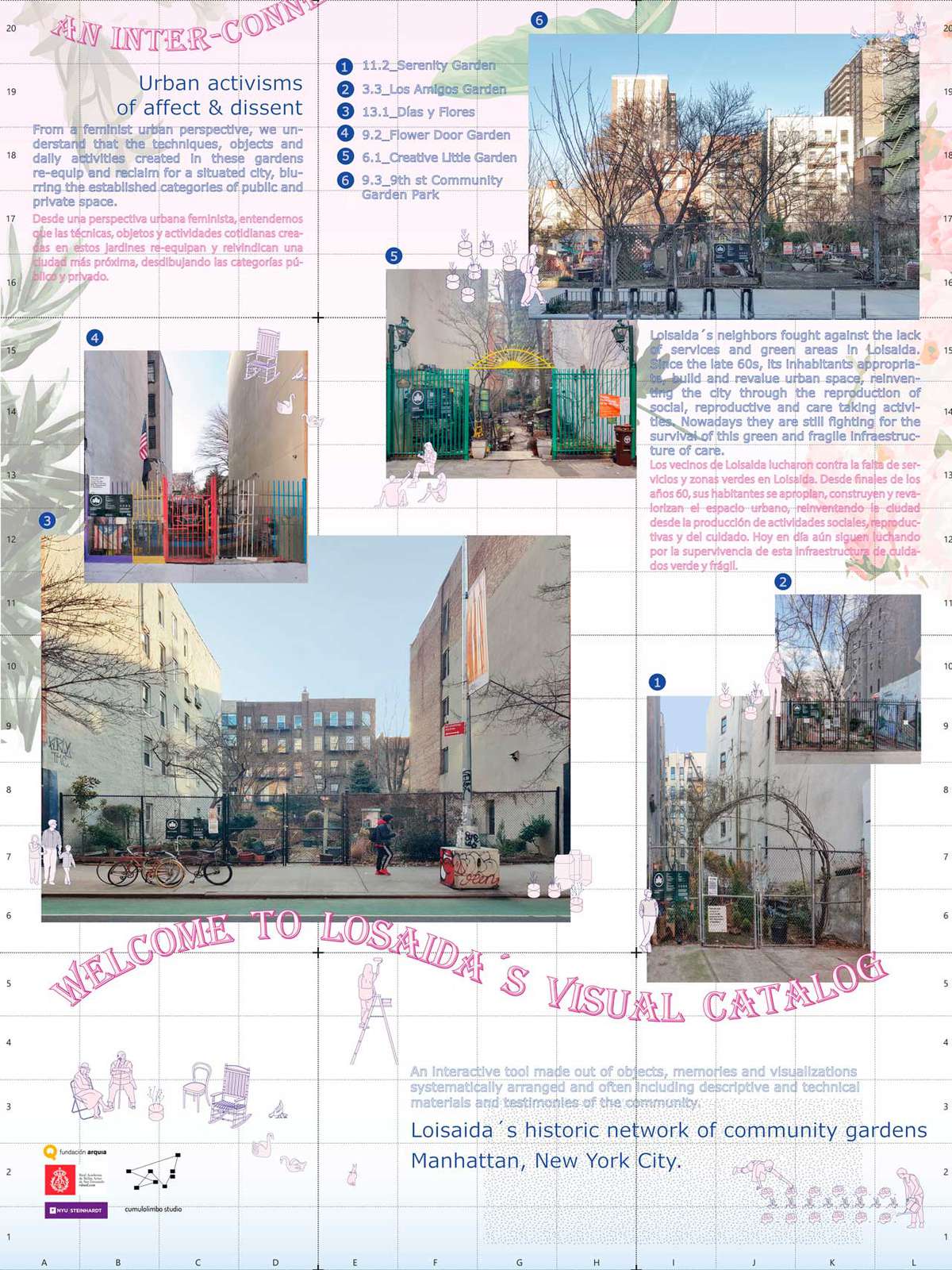
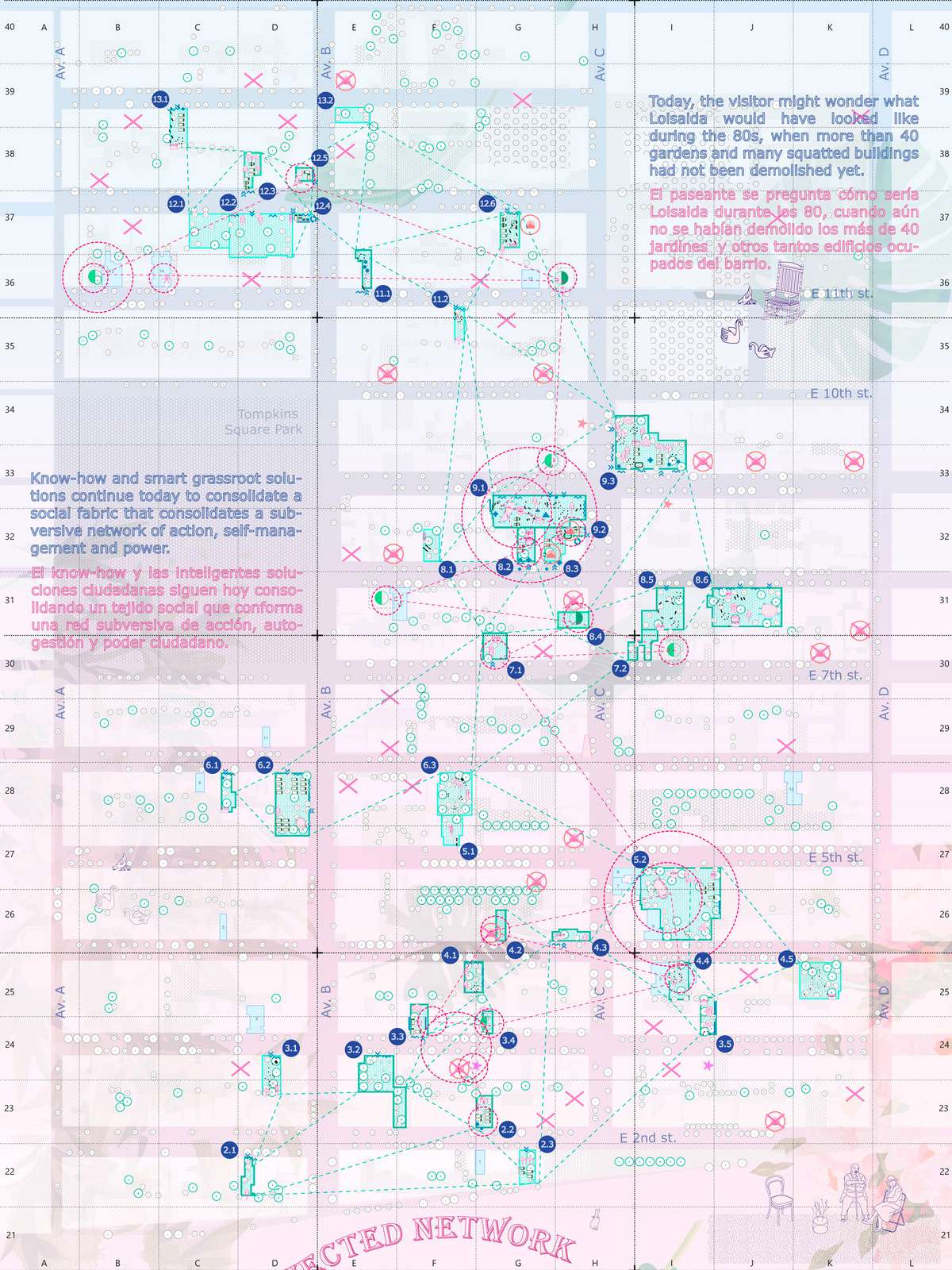
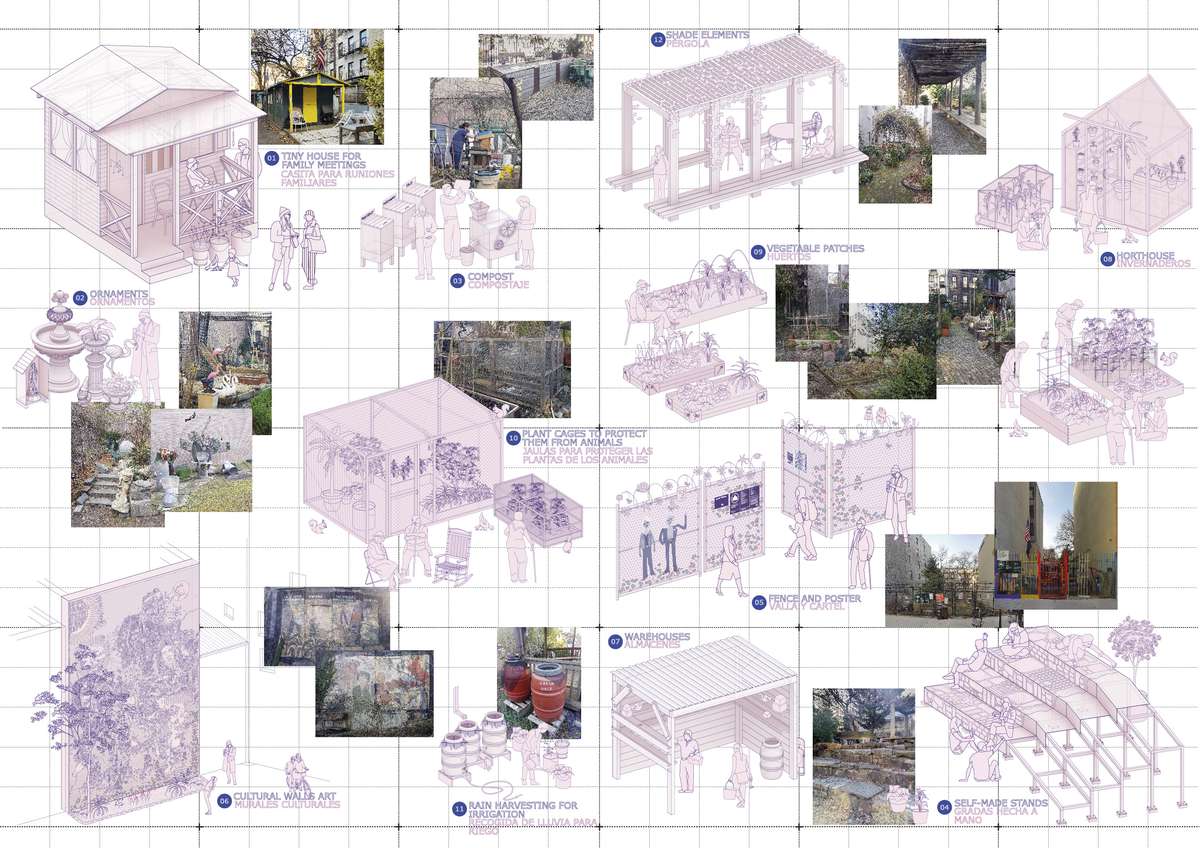
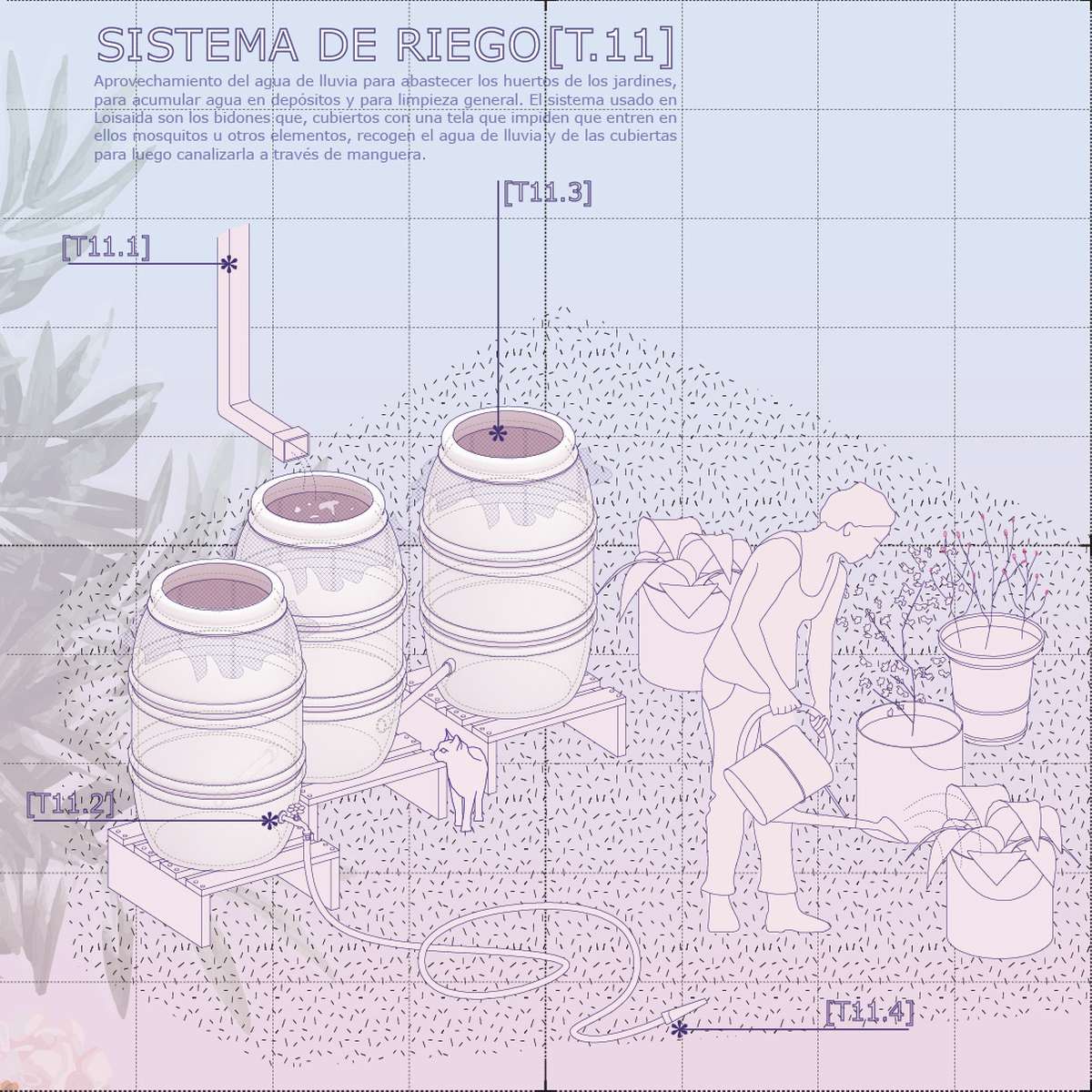
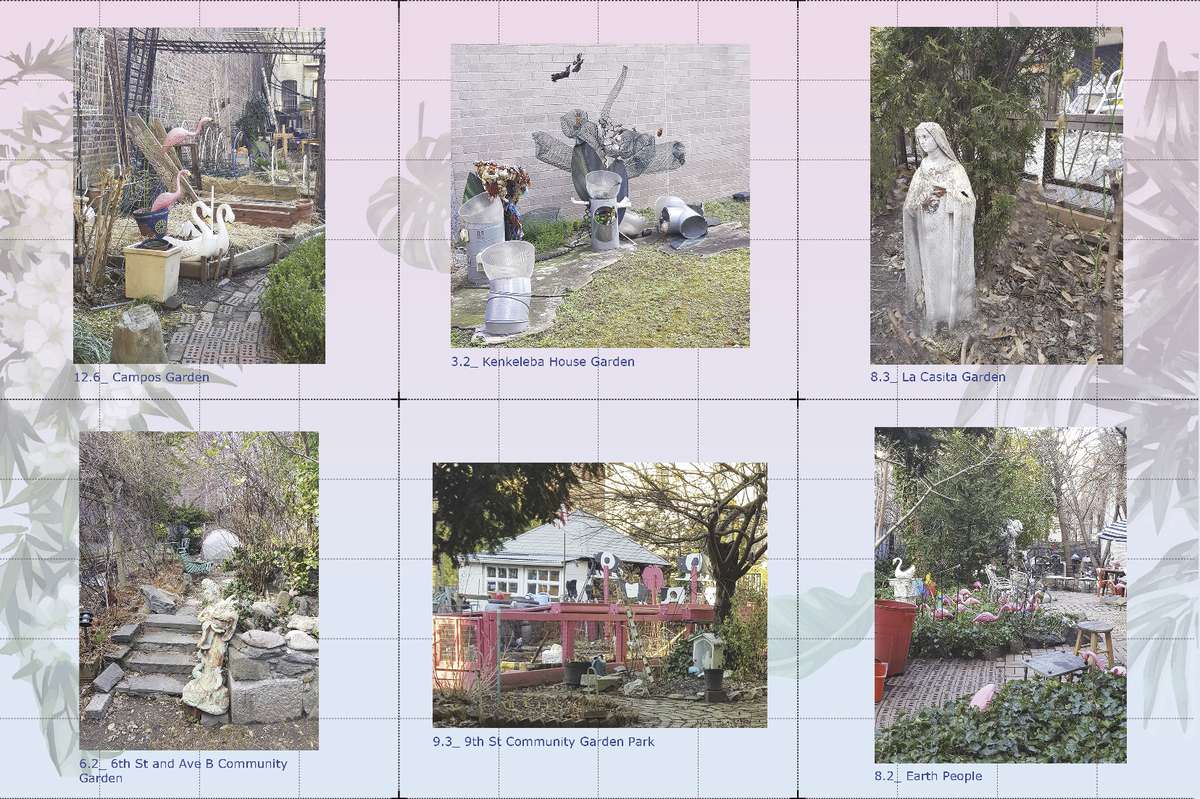
The Loisaida real catalog, an urban incubator for everyday life
The Loisaida real catalog, an urban incubator for everyday life

- Site-specific cases
The project digitally identifies and expands the physical and affective legacy of the gardens (which revalorize reproduction and economically non-productive activities). It also engages with the community and civic organizations through a catalog that reviews the existing devices on the gardens. Understanding them as a departing point for prototyping, instead of just a testimony of the past, these devices are put in dialogue with today´s discourses on ecology, urban permaculture, or Anthropocene. The project upgrades the orchards, windmills, compost systems or water tanks by inviting designers, artists, or scientists to cede their ongoing investigations and prototypes to be tried in Loisaida. Incorporating nature-based and biotechnological solutions, biohacking techniques, self-produced AI, the prototypes increase urban biodiversity, inter-species cohabitation, air purification and generate life´s resilience confronting climatic emergency and health challenges.
